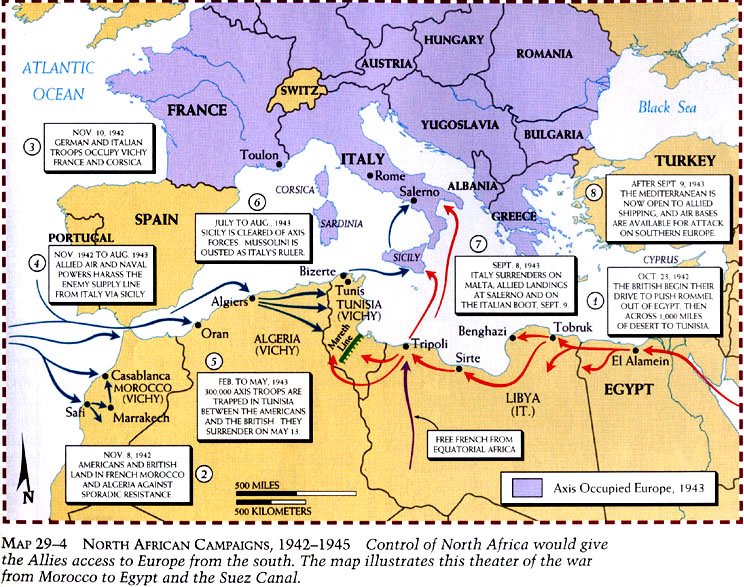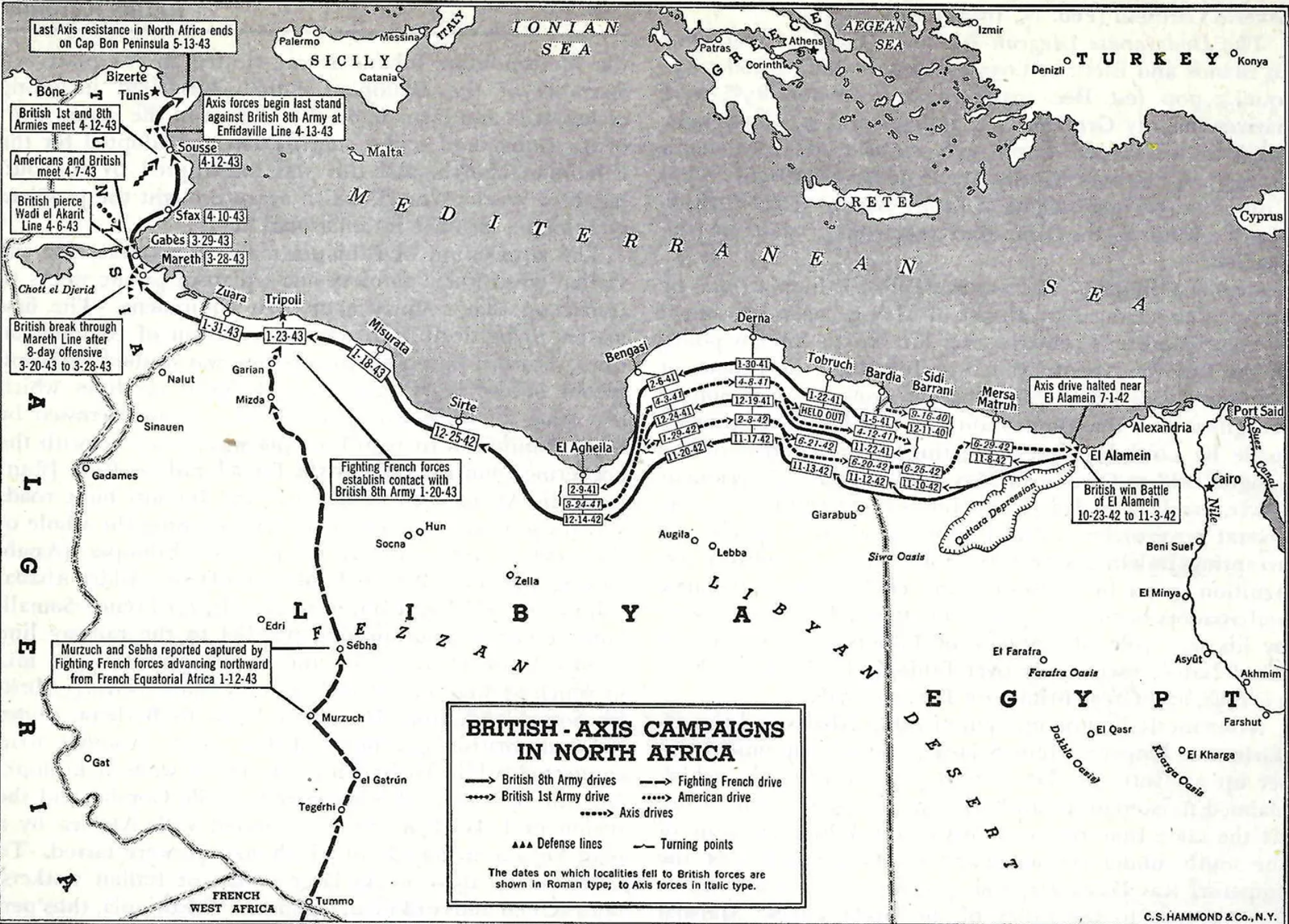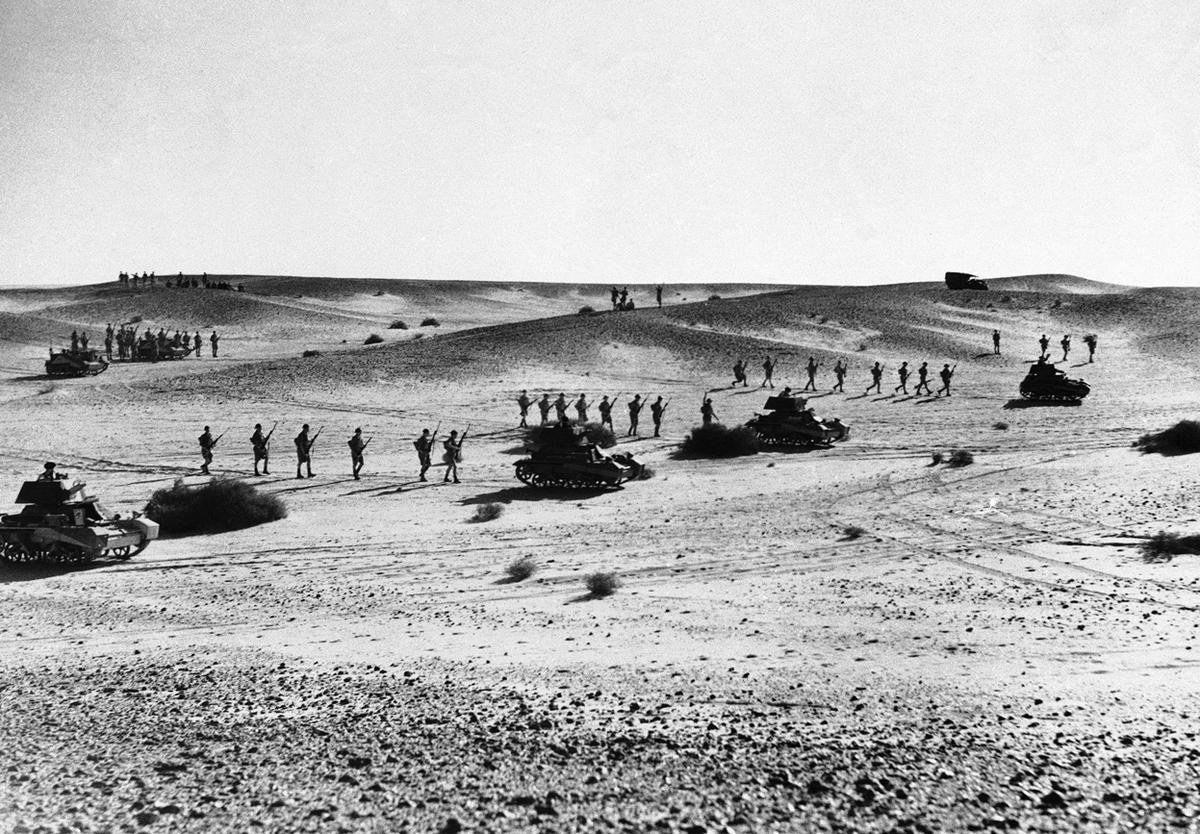Killing Rommel by Pressfield
Ref: Steven Pressfield (2009). Killing Rommel. Bantam.
__________________________________________________________________________________
Summary
The patrol of which I write, typical of so many, achieved little heroic beyond its own survival, save at the very end, and then less by military or tactical brilliance than by luck and its protagonists’ stubborn, even mulish, refusal to quit. Those actions of its men that may legitimately claim the name of gallantry came about largely from attempts at self-extrication from peril, most of which we got ourselves into by our own overzealousness, and the main of which were performed either in the heat of instinct or the frenzy of blood terror.
Over the centuries, countless warriors and thinkers, far wiser than I, have addressed the issue of morality in war and the right and wrong of taking human life. I can speak only for myself. No martial credo, however lofty or noble-sounding, will ever convince me that those men were “enemy,” even though I know that they were and that, had they got the chance, they would have visited upon me and my comrades the same destruction which we loosed upon them. That changes nothing. We took their lives. By willful violence ordered by me, our guns tore them from wives and children, fathers and mothers; from their country and from themselves. Rivers of tears cannot alter that fact. I have lived with it every day, every hour. Like many of my generation I did not go to war gravely and soberly, as Lao-tzu tells us a wise man ought. But I returned from it that way.
These fellows are different from me. I admire them; I wish I could be like them. They are men of action, warriors and man-killers. I’m not. This apprehension is, paradoxically, the beginning of my true vocation as an officer. All genuine epiphanies seem to follow this model: their defining quality is the relinquishment of delusion. The initial fear is that one has lost something. A cherished self-conception must be given up, and one feels diminished by it. This is mistaken, however. A person discovers that he has been made stronger by the jettisoning of this sham and disadvantageous baggage. In fact, he has become more “himself,” by aligning his self-concept more closely with fact.
Certainly for every glorious death memorialised in despatches, one could count twenty others that were the product of fatigue, confusion, inattention, over- or underassertion of authority, panic, timidity, hesitation, honest errors or miscalculations, mishaps and accidents, collisions, mechanical breakdowns, lost or forgotten spare parts, intelligence deficiencies, mistranslated codes, late or inadequate medical care, not to say bollocksed-up orders (or the failure to grasp and implement proper orders), misdirected fire from one’s own troops or allies, and general all-around muddling, sometimes the fault of the dead trooper himself.
__________________________________________________________________________________
WWII N. Africa Theater
If Rommel takes Suez, Britain will be cut off from India and the Far East. 200K men will go into the bag. Worse, Hitler will get his hands on the oilfields of Iraq and Arabia. Russia could fall or seek terms. The war could be lost at one swoop.
We can feel the force of Rommel’s genius. He calls the tune, we dance—and always one step behind.
When you see Axis tanks, you see columns and phalanxes; it looks as if the whole world is coming at you. The enemy’s style is ripping, audacious. They are all little Rommels. Opening the merest breach, they exploit it ruthlessly and without hesitation. They turn small victories into big ones.
A unit is “tied in” when it has contact with friendly formations right and left. A unit is “in the air” when it is cut off, alone. A force that is tied in will hold. A force in the air will run. The skill to desert warfare, we begin to comprehend, is to put the other fellow in the air while keeping your own side tied in. This is what Rommel is so brilliant at.
__________________________________________________________________________________
British Afrika Korps
The Afrika Korps’ tactics are to throw tanks and anti-tank guns forward in tandem, either to seize some strategic ground that threatens our flank or route of withdrawal, or to advance frontally in such strength that we must counter or be overrun.
__________________________________________________________________________________
The British Long Range Desert Group (LRDG)
Mission: Raiding and reconnaissance in the enemy’s rear with patrols comprised of 5-6 trucks, with one officer and 15-20 men. Patrols were entirely self-contained, carrying all their own petrol, water, rations, ammunition and spare parts. In addition to its own combat operations, the LRDG conveyed spies and agents on covert assignments and provided transport and navigation for assault parties of the SAS and other commando outfits. The group’s greatest joy, however, was to work “beat-ups,” their slang term for attacks on enemy airfields, motor assembly areas and convoy routes.
The LRDG was not seeking buccaneers or assassins; what its officers wanted was the solid, mature sort—the type of chap who could think for himself under pressure, work in close quarters with others, and handle extremes not only of danger but of tedium, hardship and privation. The virtues of resourcefulness, self-composure, patience, hardiness, not to mention a sense of humour, were prized as highly as those of bravery, aggressiveness, and raw martial rigour.
__________________________________________________________________________________
Leadership
I was a flawed officer in the Armoured Division. I lacked empathy; I could not lead men.
From the point of view of those serving beneath me, I had become someone they could look to for leadership and direction, who would shield them from meddling from above, and would ask no act of them that he wasn’t prepared to perform himself. I provided for my men a framework within which they were freed to use their own qualities of courage, resourcefulness and tenacity.
By war’s end, I had become quite an able commander, which I define by the following criteria. First, from the point of view of my superiors, I could be counted upon to perform the mission they had assigned me, or, if that was unworkable, to improvise and turn my men’s exertions upon a secondary undertaking as good as or better than the first.
In the special forces, I’m beginning to understand, an officer rarely issues orders. The men are ahead of him. Whatever the task, they set about it before their superiors can command them and have it half done before the officer even knows they’ve plunged in. Discipline is not externally imposed, it’s self-discipline.
The role of the officer is nothing grander than to stand sentinel over himself and his men, towards the end of keeping them from forgetting who they are and what their objective is, how to get there, and what equipment they’re supposed to have when they arrive. Oh, and getting back. That’s the tricky part.
The applications of preparation and thoroughness far surpasses those of courage and intrepidity.
Our new leader restores order. He gives us heart. He defines the problem and provides a solution.
All irresolution is dispelled by taking the initiative.
__________________________________________________________________________________
People
Field Marshall General Erwin “The Desert Fox” Rommel (15 Nov, 1891- 14 Oct, 1944)
When orders from Hitler mandated the execution of captured British commandos, Rommel tossed the document into the trash. He insisted that Allied prisoners receive the same rations and medical care as he himself was given. He even wrote a book about the conflict called Krieg ohne Hass (War Without Hate).
__________________________________________________________________________________
Misc Quotes
“Dear comrades I have been slain; I myself may meet my end tomorrow. Yet this only adds to the savour of being, ourselves, still alive. The smells about are of scrub acacia and motor oil, sweat and sheep dung and gunblack. The joy of this hour, of being in this place with these men, is so keen it makes my eyes smart.”
“Let me say this about courage under fire. In my experience, valour in action counts for far less than simply performing one’s commonplace task without cocking it up.”
“I have often wondered of comrades who fell as heroes during the war whether, in the fatal instant, they weren’t privately relieved to do so, dreading a deadly post-war normality more than the bullets and cannon shells of the foe.”
“The enemy against whom we fight are human beings like ourselves, individuals with whom each of us might have been friends except for the deranged fictions of nation, doctrine, race and religion, and whom now we must murder (as they seek to murder us) in the name of those very same fictions. And yet, knowing all this and understanding it, still, in some depraved and ineluctable way, we and they must live it out to the bloody finish.”
“One purpose is paramount in my mind. We must kill or incapacitate every man on the trucks. To permit even one to survive, in the darkness from which he can snipe or loose a machine-gun burst at my men, is unthinkable. These are armed enemy, who have hastened to this site with one object only: to take the lives of my companions and me. I must take theirs first. No truth could be plainer. Yet at the same time nothing can alter the fact that beneath the fascist insignia of their uniforms, these men are fathers, husbands, sons.”
“The public schools of that era produced a type of young man who was keen but not academic, athletic but not muscle-bound, gay of heart and confident of mien, a solid chap, the sort who would sooner die than let the side down. Put another way, the system turned out the kind of individual who frequently displayed boredom or feckless complacency during times of prosperity, but shone through in hours of trial.”
“Why was this (enlisting in WWII) so important to me? I can’t say, even today. I doubt that many of my contemporaries could either. We were simply driven to get into the fight or, perhaps more to the point, to not be left out. Absurd as it sounds, for me the dread of spending the rest of my life as an invalid paled alongside the agony of being shunted to the sidelines unable to aid England while she stood in mortal peril.”
“When I was twelve, my mother was killed in a motor accident. I am not a subscriber to the theory of traumatic psychopathology. It is humbug in my view to isolate some episode from childhood and extrapolate from it an aberration of character, indelible for the remainder of one’s life. That said, some wounds go deep.”
“Rationality is powerless against emotion.”
“The Irishman’s complaint lies not with his circumstances, which might be rendered brilliant by labour or luck, but with the injustice of existence itself. Death! How could a benevolent Deity gift us with life, only to set such a cruel term upon it? Irish despair knows no remedy. Money doesn’t help. Love fades; fame is fleeting. The only cures are booze and sentiment. That’s why the Irish are such noble drunks and glorious poets. No one sings like the Irish or mourns like them. Why? Because they’re angels imprisoned in vessels of flesh.”
“On our side, we’re bold but not smart; our rushes are like the Charge of the Light Brigade, all flash and no sense.”
“I wish I were a seasoned tank commander. I’m not. I’m faking 50% of everything. The enemy’s skills are leagues beyond ours, as are his tactics and equipment. We know it and so does he. I’m not frightened; there’s no time for that; too much concentration is required. But I’m keenly aware of my own deficiencies and those of my crew and my guns and my commanders. It is not a reassuring feeling.”
“Somehow I’m on my feet on the ground. I have taken the Iron Cross officer under one arm, supporting him. I call for the medical kit. My thought is to leave the box for the wounded men and keep moving. But as Grainger brings the pathetically inadequate white case with the red cross on its side, I am seized with such shame as I have never known.”
“The army is trying to send me to the rear, where I can be with my wife and baby, that union which I desire more than anything in the world, yet here I am hastening, against all common sense and the expectations of my peers, towards the front. Why? Because I feel guilty for killing the enemy, which is exactly what I am supposed to do and what I agree I’m supposed to do. When I get to the front, how do I hope to redeem myself? By killing more enemy, or taking such actions as will lead directly or indirectly to the deaths of as many of the enemy as possible, as if by this further crime I will absolve all previous crimes, which are not crimes at all but actions for which my country will honour me and in which I in later years no doubt will take secret and perhaps not so secret satisfaction.”
“There are moments for which no amount of training can prepare one. A man’s life against a notion of honour. Who am I, at 22 years old, to make such a decision, to risk everything a man possesses or ever will possess, his wife, his children, their lives and future, against an abstract principle whose merit I am no more capable of gauging than he?”
“Stein has a theory about inner evolution. A man matures, he believes, from archetype to archetype: from Son to Wanderer to Warrior and from there, if he’s lucky, to Lover, Husband, Father; King, Sage and Mystic.”
“Sir, it is my duty to report that the Tunisian campaign is over. All enemy resistance has ceased. We are masters of the North African shores.”-Gen. Alexander to PM Churchill on the British capture of Tunis.
__________________________________________________________________________________
Chronology
Jul, 1944: Rommel is charged with complicity to assassinate the Führer and is offered the choice of taking his own life—by cyanide capsule provided by his accusers—or putting the nation through the ordeal of a trial before a Nazi court. Rommel was certain his persecutors would never let him survive to reach trial. He took the poison and was buried with full military honours at Herrlingen on 18 Oct, 1944.-Killing Rommel by Pressfield.
7 May, 1943: Tunis is captured by the British; the Germans retreat to mainland Europe.-Killing Rommel by Pressfield.
12-19 Mar, 1943: The 2nd New Zealand Division flanks the Germans at the Mareth Line.-Killing Rommel by Pressfield.
20 Feb, 1943: Rommel’s Panzers attack and defeat American forces, capturing 4000.-Killing Rommel by Pressfield.
14 Feb, 1943: German Operation Spring Wind is launched, quickly overwhelming the Americans at Sidi bou Zid.-Killing Rommel by Pressfield.
23 Jan, 1943: Tripoli is captured by the British Eighth Army; Rommel escapes West.-Killing Rommel by Pressfield.
8-10 Nov, 1942: Operation Torch; an Anglo-American amphibious landings at Casablanca, Oran and Algiers, puts ashore 90,000 men and 450 tanks.-Killing Rommel by Pressfield.
Spring, 1941: British Operation Crusader stabilizes the front between German and Allied Forces.-Killing Rommel by Pressfield.
Feb, 1941: German Afrika Korps under Rommel land at Tripoli. In his first campaign, before half his men and tanks have arrived from Europe, he chases the Allied Western Desert Force out of Cyrenaica, driving British armoured divisions back nearly a thousand miles to the Egyptian frontier.-Killing Rommel by Pressfield.
1940: Germany invades France; Rommel commands the 7th Panzer Division which spearheads the blitzkrieg breakthrough of the Ardennes, the blow that breaks France’s back.-Killing Rommel by Pressfield.
__________________________________________________________________________________


